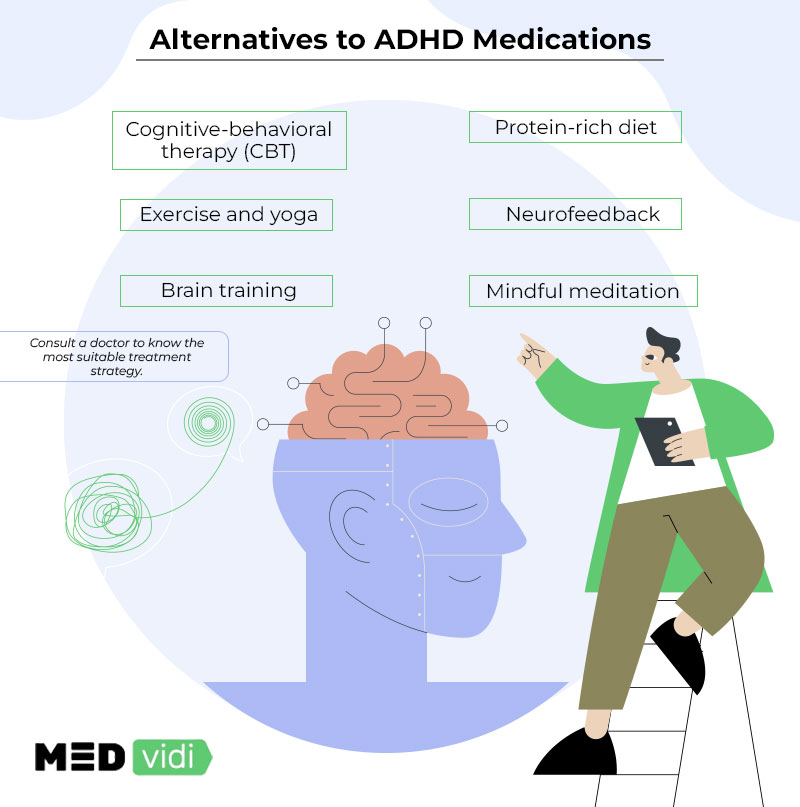Therapist for ADHD Offering Comprehensive Care Plans
Therapist for ADHD Offering Comprehensive Care Plans
Blog Article
Your Guide to Finding the Right ADHD Therapy for Long-term Results
Browsing the intricacies of ADHD therapy calls for a nuanced understanding of both the disorder and the myriad choices available for efficient management. It is important to recognize that what works for one person may not necessarily generate the very same outcomes for one more. Hence, a tailored method-- integrating expert support, medicine, behavioral techniques, and lifestyle modifications-- becomes critical. The journey toward determining the most ideal treatment strategy can be stuffed with challenges. What are the essential aspects that affect effective outcomes, and exactly how can people guarantee they get on the right path?
Recognizing ADHD and Its Effect

In grownups, ADHD can bring about challenges in office settings, affecting efficiency, time monitoring, and social connections. Commonly, undiagnosed or incorrectly took care of ADHD can add to co-occurring mental health problems, such as anxiety and clinical depression, more complicating a person's total wellness.
The societal assumption of ADHD can vary, leading to preconception and misunderstanding, which might impede people from looking for help. As understanding grows, it is necessary to promote an atmosphere that promotes understanding and support for those influenced by ADHD, stressing the need for accurate diagnosis and tailored methods to mitigate its influence on everyday life.
Summary of Treatment Options
An extensive approach to treating ADHD incorporates a variety of choices customized to the person's special demands. These choices can generally be classified right into behavior treatments, psychoeducation, and way of living alterations, along with pharmacological therapies that might be checked out later.
Behavioral interventions, such as cognitive-behavioral therapy (CBT), emphasis on modifying specific behaviors and creating coping approaches to handle signs successfully. Psychoeducation plays a critical function in empowering both people and their families by providing information about ADHD, its challenges, and effective strategies for assistance.
Lifestyle adjustments can substantially affect ADHD management. Normal physical activity, a well balanced diet, and ample sleep add to overall well-being and symptom control. Mindfulness practices and relaxation strategies can likewise improve focus and lower impulsivity.
Support groups and family treatment can foster a feeling of community and understanding, assisting people feel much less isolated in their experiences. Each therapy choice ought to be taken into consideration in combination with the person's choices and scenarios, making sure an alternative technique that promotes additional info long-lasting success. Ultimately, the goal is to develop an individualized treatment plan that deals with the specific obstacles related to ADHD while enhancing general top quality of life.
Medicine: Advantages And Disadvantages
Medicine plays a critical role in the therapy of ADHD, with numerous choices available that can substantially reduce signs and symptoms for several individuals. Stimulants, such as methylphenidate and amphetamines, are typically suggested and have shown performance in improving emphasis, minimizing impulsivity, and improving total habits. These medications function by raising dopamine investigate this site and norepinephrine degrees in the brain, which are usually dysregulated in those with ADHD.
However, the usage of drug is not without its challenges. Some people might experience adverse effects, including sleeplessness, decreased hunger, or raised stress and anxiety. Additionally, locating the appropriate dosage can be a trial-and-error process, needing close monitoring by health care experts. Additionally, not all clients react to stimulant drugs, leading some to check out non-stimulant choices, which may have a delayed onset of action or different adverse effects.
It is necessary for people and their families to weigh these benefits and drawbacks carefully. Stabilizing the benefits of symptom management versus prospective side effects is crucial for attaining optimal therapy results. Collaboration with medical care providers can promote educated choices, ensuring that drug is part of a comprehensive ADHD monitoring strategy.
Behavior Modification Methods

One typically used approach is Cognitive Behavior modification (CBT), which aids people recognize and transform negative thought patterns that add to ADHD-related challenges. Therapist for ADHD. Via CBT, clients learn to set realistic objectives, take care of time successfully, and establish organizational More Help systems
An additional efficient strategy is Parent Monitoring Training (PMT), which informs moms and dads on how to enhance favorable habits and lower unfavorable ones through regular discipline and interaction strategies. This technique fosters a supportive home setting that motivates behavioral renovations.
Social skills training is likewise integral, aiding people with ADHD browse social interactions much more efficiently. Role-playing and modeling ideal habits can enhance social capability and minimize stress and anxiety in social circumstances.
Lifestyle Adjustments for Better Administration
Exactly how can way of living modifications dramatically enhance the management of ADHD symptoms? Carrying out critical lifestyle adjustments can cause significant enhancements in emphasis, company, and psychological policy for individuals with ADHD.
First of all, developing an organized day-to-day regimen helps in producing predictability, which can relieve feelings of bewilder. Regular timetables for dishes, research, and sleep can enhance daily functioning.
Integrating routine physical task is additionally crucial, as exercise has been shown to increase dopamine levels, enhancing interest and inspiration (Therapist for ADHD). Going for a minimum of half an hour of modest exercise most days can be useful
Nutrition plays a crucial duty. A well balanced diet plan rich in omega-3 fats, entire grains, and healthy protein can sustain cognitive feature. Restricting refined sugars and caffeine might lower symptoms, as these can lead to energy crashes and impatience.
Final Thought
In final thought, finding the appropriate ADHD therapy requires a complex approach that considers individual requirements and choices. A combination of drug, behavior modification, and lifestyle alterations can dramatically improve symptom monitoring and total health. Engaging in psychoeducation and developing structured routines better supports effective therapy techniques. Cooperation with health care specialists and open interaction with assistance networks are vital elements in navigating the intricacies of ADHD monitoring, eventually resulting in lasting outcomes and improved lifestyle.
Report this page